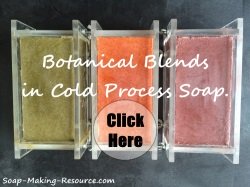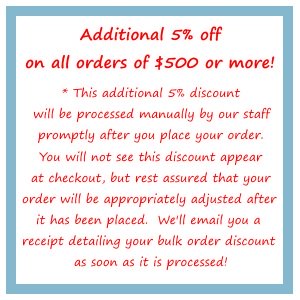Olive Oil Soap Making
On this page, we are going to learn about olive oil soap making and some key tips for creating a successful batch. Making olive oil soap is a ton of fun and the product that this oil produces is wonderful for the skin!
Olive Oil, Refined A 20% Off (Out of Stock) | ||
| Olive Oil (Refined A) 16oz | $7.20 | Out of Stock |
| Olive Oil (Refined A) 64oz | $24.32 | Out of Stock |
| Olive Oil (Refined A) 1 Gallon | $38.91 | Out of Stock |
Soap Making Resource's quality products: |
|||
 |
 |
 |
 |
 |
 |
 |
 |
Free delivery on orders $200 or more *Contiguous USA only |
|||
Sign up for the Soap Making Resource e-Newsletter. |
|||
Orders Outside the USA Please Click Here. We Ship Worldwide! |
|||
First, let's take a look at the fatty acid, Iodine and SAP values for olive oil:
| Lauric | 0% |
| linoleic | 10% |
| linolenic | 1% |
| Oleic | 72% |
| Palmitic | 11% |
| Ricinoleic | 0% |
| stearic | 4% |
| myristic | 0% |
| Iodine Value | 82 |
| SAP Value Sodium Hydroxide | .135 |
| SAP Value Potassium Hydroxide | .190 |
When using olive oil for soap making, here are the attributes that will be added to your soap...
| Bubbly lather | No |
| Creamy/Stable lather | Yes |
| Cleansing | Mild |
| Conditioning | Yes |
| Hardness | No |
Although some of the initial content may seem like basic information about olive oil it's important that you read through it and understand the entire tutorial. In this lesson, you will discover that one common rule for many natural soap makers "always use the very highest grade ingredients possible" does not necessarily hold true for the olive oil soap making process.
|
Sign Up Today!
*Your information is SAFE with us! |
What is olive oil? Olive oil is "fruit oil" that is acquired by cold pressing olives. Each time the olive fruit is pressed, different grades of olive oil are achieved.
During the first light pressing, the olive oil is considered to be extra virgin or virgin and is regarded as the highest quality grade for cooking.
A second pressing, with more pressure then the first, yields refined "grade A" olive oil and is considered to be a lower grade because of the presence of free fatty acids.
After the second pressing, it's usually no longer possible to obtain any oil through adding more pressure to the leftover fruit so a solvent called hexane is usually used to remove the remaining oil from the olive. This oil is considered "grade B" olive oil and is, of course, an even lower grade with even more free fatty acids.
Finally, pomace oil is the lowest grade olive oil of all as it is the oil from the pomace (pits) of the olive.
Unlike in cooking where you always want to use the highest grade possible, you can use the lower grade olive oil for soap making without any problems! In fact, some people prefer the lower grades because of its quicker trace. Surprised? Well, to be honest with you, so was I. Believe it or not, in olive oil soap making, we can actually break the rule of always using the best ingredients without any negative consequences!
You see, here's what you have to understand: "Grade B" olive oil, as long as you use a completely natural and organic form of it, is only low quality for consumption not for cosmetics.
Not only is there no harm in using "grade B" for olive oil soap making, but it could actually be beneficial to use this type because the lower the grade, the more molecules there are that won't go through saponification. In other words, more of the olive oil will remain intact throughout the reaction making the soap better for your skin as your pores enjoy the healing properties of the unadulterated olive oil.
Also, the lower the grade, the less time it takes for the soap recipe to saponify. This is also wonderful because you don't have to stir your mixture for hours on end when making olive oil soap. Of course, if you use a stick blender, trace will be reached relatively quickly no matter what type of olive oil you use.
For olive oil soap making, I personally use "grade A" olive oil with great success. I find that pomace and grade B olive oil saponifies way too quickly. I also don't like to use the lower grades because a solvent is usually used to extract the oil. My personal preference is to stay away from oils extracted with a solvent... It's just me, it probably doesn't really matter that much! Extra virgin olive oil saponifies too slowly, so grade A seems to be the perfect choice for me. As you experiment with olive oil soap making you will surely develop your own personal preference.
More Tips and Tricks for Making Olive Oil Soap
Beware of supermarket olive oil because some have other cheaper oils added to them in order to decrease their manufacturing costs. I know a soap maker who once tried making soap with a very popular brand of olive oil, and it just didn't work right because it wasn't pure olive oil!
If you do decide to use a supermarket brand, thoroughly check the label and call the company to make sure you are getting pure olive oil only and not some hybrid formula.
Many people love making (and using) pure 100% olive oil soap without adding any other oils to the recipe. Just keep in mind that olive oil alone will initially produce a very soft soap and an almost slimy lather. After a long cure time it will harden up nicely, but the lather will still have a slimy feel. Many soap makers like to combine this ingredient with other soap making oils, like coconut oil, that produce firmer bars that offer a more bubbly lather.
Benefits of Olive Oil Soap?
So what are the benefits of olive oil soap? Olive oil soap is very mild. In fact, pure olive oil soap is mild enough to use on babies partly because of its unparalleled moisturizing and conditioning abilities. Plus, unlike most heavy commercial lotions, olive oil moisturizes the skin without clogging pores.
Using olive oil for soap making is highly recommended especially if you combine it with other oils that add hardness and lather to your bar.
Return from olive oil soap making to the soap making ingredients main page.











